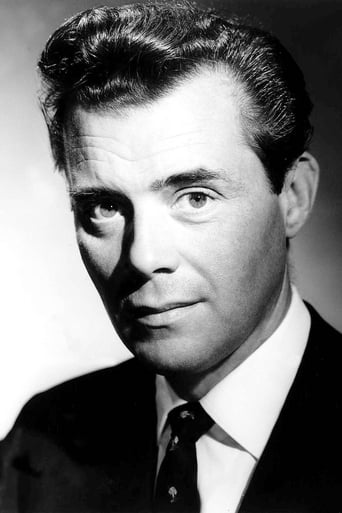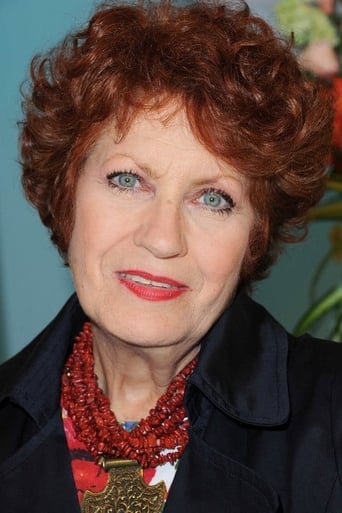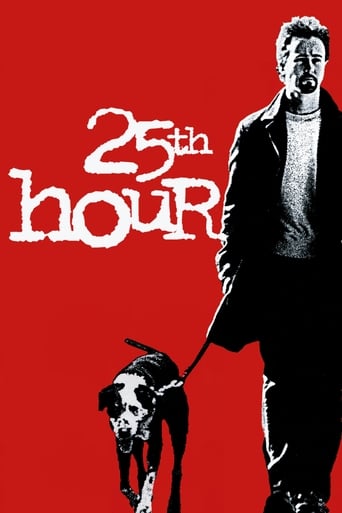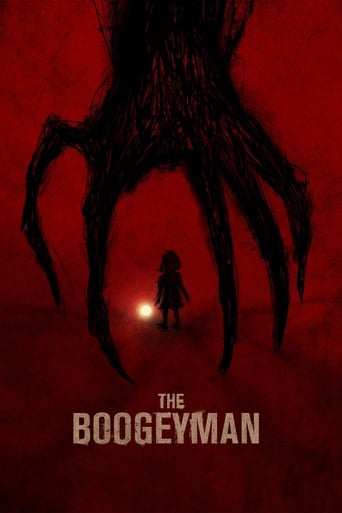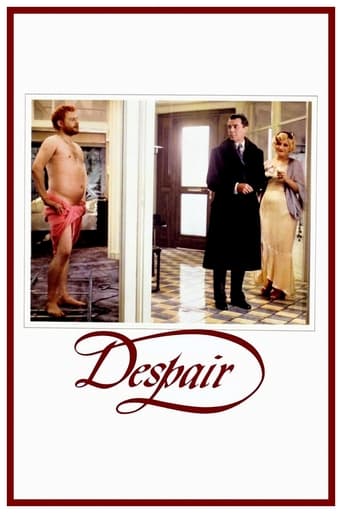
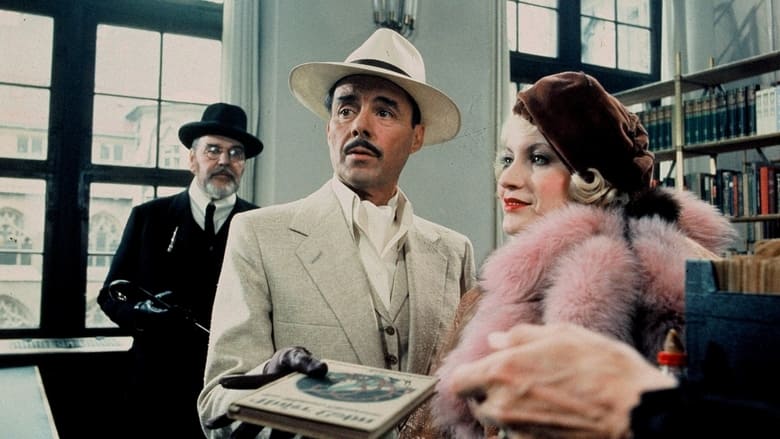
Despair (1978)
Berlin, 1930, during the rise of Nazism. Hermann Hermann, a Russian emigrant and chocolate manufacturer, married to the capricious Lydia, loses his temper more and more every day when dealing with his workers and other businessmen; until he meets Felix, a vagrant, who seems to be physically identical to him; a disconcerting fact that leads Hermann Hermann to plot a particular way out of a fake world he actually hates.
Watch Trailer
Cast


Similar titles
Reviews
For starters - I'd say that watching "Despair" was (amongst other things) a very, very, very despairing experience. Very.This 1978 German production was directed by Rainer Fassbinder. And - Let me tell ya - Had "Despair" been a Hollywood production, directed by an American film-maker - Then - You can bet that no one would be heaping praise on it like they are just because this one happens to be a foreign import. It's true.Set in Nazi Germany during the 1930s - I found "Despair" (for the most part) to be a really plodding and senseless mess. In other words - It was a typical "Fassbinder" film.Adapted for the screen from the novel written by Russian author, Vladimir Nabokov - This one's story may have worked well in book format - But, put into the incompetent hands of director, Fassbinder - It totally stank like the reeking stench of rotting sauerkraut. Yep. It really did.
Wonderful pattern of REAL ART-film for me.I suppose Fassbinnder showed very precisely here, the difference between artistic reality and rough and dull one, maybe they can penetrate each other, but eventually that's impossible for the first to exist, when the second is becoming aggressive. As I read, Hermann of Nabokov in the novel "Despair" is a kind of artist. Fassbinnder based his film on this moment as I understood: he dedicated the film to Van Gogh and other artists.Marvelous world of Hermann's house with sweet and funny (like chocolate?!) Hermann's wife Lydia and her brother Ardalion (amazing red-haired and red-bearded Russian, in highest extent picturesque and grotesque but exquisite image of how-Europeans-imagine-Russians). This candy paradise is being eaten by insatiable and horror monster.But who is that monster or what is that monster, I think, here are many variations. Hermann's artistic and refined mind itself, which created all this splendor before, may be. Or banal savage real-life of barracks, from which Hermann wants to escape at the end of film.Many things in the film are flying above the ground. Like Nabokov's butterflies: main characters - Hermann and relatives, exquisite absurd humor, locations of house, restaurant, even Hermann choco factory in lilac color, holiday at the lake (Ardalion - mermaid man :))). Stepping on the ground are only awful bearded and haired Felix - double-ganger, as usual Nazi-men in the streets, detectives-noir.Dirk Bogarde, yet more slim and dry as never before, as a new-level reincarnation of his previous morbid and fatal characters in cinema, finally becomes quite abstract figure. And it's a brilliant zenith of his long and complex actor career as I think.Yet I'd add that Despair is a great example of how can make films about artists - sparkling but not heavy-weighted costume biopics.
As the owner of a chocolate factory, Hermann Hermann (Dirk Bogarde) enjoys all the luxury of a high-style bourgeois life, but in reality, it shows up merely as a facade, because his factory stays before bankruptcy, and his wife Lydia (Andréa Ferréol) has a liaison with her brother-in-law, the painter Ardalion (Volker Spengler). Hermann Hermann starts to doubt everything, and eventually he realizes, that this bit of life, that lies still before him, will be wasted in any case to a hopeless struggle against these doubts. His meeting with the sleeping hobo Felix Weber (Klaus Löwitsch) as a picture of the death can be seen as birth of the idea to stage a sudden accident, in order to cash a high sum of insurance money. In exchanging his outer appearance, Hermann Hermann believes to be capable of transcending the borders of his life and to be able to start a new one. Hermann Hermann has a totally emotionless relation to the death, because it is the death of the other and for him a necessary act to commence a new life. The radical moment lies in the fact of the penetration into another life, whose border to one's own life is a big as the border between the Here and the Beyond.The whole movie is characterized by objects and persons, who have their counterparts and mirror images, respectively. For Fassbinder, glass walls were borders, through which one could look through form the one side and which were opaque from the other. While the mirrors in Nabokov's novel stay opaque, Fassbinder creates with his glass labyrinths transparency, allows the sight into the Beyond, and dissolves the hermetic presentation. "Despair" produces a visual bridge between the two worlds: In Fassbinder's film, the borders between the Here and the Beyond start to merge into one another, while Nabokov underlines the closeness of both worlds. Not only is Hermann Hermann himself observing subject, but he is also the object of observation. In view of this perception, the world, in which there is no border anymore between subject and object turns strange and menacing. With the disappearance of the projected Ego also the process of self-dissolution announces itself, that ends with the real Ego being at the end not anymore identical to itself and the dissociation of the personality being complete. But Hermann Hermann's plan fails, because his fatal idea of the similarity between him and Felix Weber is at last the product of his sick fantasy. The hero is becoming the victim of his own deformed perception. Sitting in a hotel room, he finally writes his own story. At the end, the "trip into the light", as the German title of the movie is named, ends with the darkness of Hermann Hermann's mind in a bright Alpine mountain village, when he gets fully insane and considers the reality to be a movie, whose director he is and whose acting he is able to control.There can be no doubt, that this is not only Fassbinder's best movie, but one of the top ten movies made ever. Rating: 10 Points.
Shot in English on a budget that nearly equaled the cost of his first fifteen films, Rainer Werner Fassbinder's Despair has wit and style yet its attempt to recreate the dark, comedic genius of Vladimir Nabokov left me unmoved and uninvolved. Based on Nabokov's novel Despair (apparently intended as a parody of Dostoevsky), and adapted for the screen by Tom Stoppard, the film describes the descent into madness of wealthy chocolate entrepreneur Hermann Herman (Dirk Bogarde). Set in Germany on the eve of the Third Reich, scenes of the Nazis assaulting Jewish-owned businesses are sprinkled throughout the film but to no apparent purpose. Herman has left his Russian home to live in Berlin and constantly fantasizes about the beauty of the Russian winters and whispers `Russia, which we have lost forever...' to his wife, Lydia (Andrea Ferreol). He is a thoroughly unsympathetic character: cold, calculating, and cynical and Mr. Bogarde's exaggerated mannerisms do not make him any easier to appreciate. Much of the film takes place inside Herman's stately bourgeois home. Shots of the characters through glass partitions keep the viewer at a distance and the elegant interiors look like an abandoned mausoleum. Lydia's and Herman's relationship is unconvincing and Fassbinder's repeated descriptions of Lydia as an unintelligent sex object border on misogyny. "The flowers of your sensuality would wilt with intelligence," Herman tells his wife whom he always addresses with condescension. In addition to Lydia, we gradually meet other vivid supporting characters: Lydia's cousin, Ardalion; and Dr. Orlovious, an insurance salesman whom Herman mistakenly thinks is a psychiatrist and opens up to. Herman is convinced that Felix Weber (Klaus Lowitch), a laborer, resembles him as closely as "two drops of blood." though the resemblance is tentative at best (a joke Nabokov wisely saved for his readers until the end of his novella). He has an odd compulsion to observe himself as a stranger and devises a plan to commit the perfect crime, exchanging identities with the worker as a means of escaping his existence. Felix, on the other hand, decides to humor the eccentric Herman with the thought of getting a job. In Despair, Fassbinder constructs a world in the process of falling apart where people march inexorably toward self-destruction and where the journey into light proves to be an illusion. In a world approaching madness, however, Hermann seems to fit perfectly -- no more, no less crazy than the insanity occurring around him.


